Navigating a way out of a traffic imbroglio
The pace at which vehicles are multiplying today and the impact on traffic volume are fast leading us towards anarchy
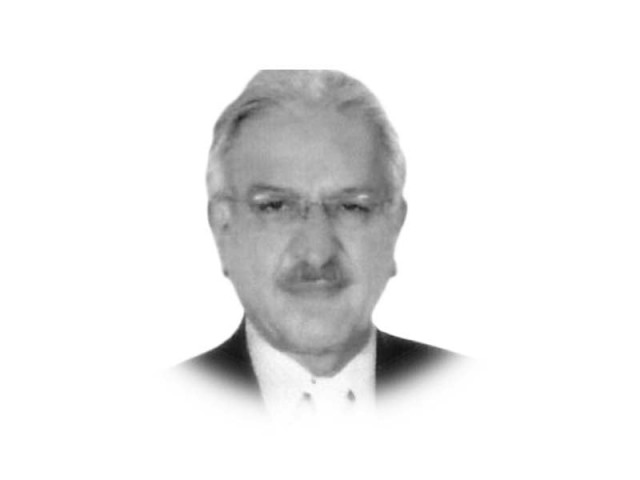
The writer is founder and life patron of the motorway police
After providing them mobility, gadgetry, smart uniforms, we should not expect miracles from the traffic police. The picture is muddled as every Pakistani believes he is a traffic expert. Then factor in the innumerable physical impediments that hinder the smooth flow of traffic on every highway and road of the country, coupled with the VIP culture, and you have an exasperated, frustrated, compromised and helpless enforcement staff.
Even though solutions are simple entailing little cost, they are not forthcoming. What appears to be lacking is comprehension and political will. When the government had the will, the motorway police rose like a phoenix from the ashes. Unwanted and discarded serving traffic police officers became icons of excellence in just six months. Such a transformation within that period is unparelled in the annals of the world’s policing history. Had the then government continued to initiate allied measures, a comprehensive and seamless system would have been in place for managing traffic scientifically and pragmatically. Alas that was not to be!
So why didn’t we just simply follow what was done on the motorway? My repeated entreatments and proposals yielded little, causing me untold dismay, particularly because, we again have the same government. Perhaps there is no other reason except for lack of will and abundance of experts.
One such expert, none other than a minister, closed the right lane of all roads, to all traffic in Islamabad to prevent accidents and curb speeding and later even placed road barriers in this lane to ensure compliance. The result was a complete mess which forced me to protest in writing and the lane was opened.
If all matters related to traffic regulation and management are not administered from a single point our traffic mess will remain impossible to resolve. Efficient policing, effective enforcement and modern equipment/vehicles are essential but just the tip of the iceberg. It is the working conditions and management systems which have to be so organised that every peg falls into the right slot. This would mean placing registration, licensing, certification, regulation, road engineering, fixing limits, revision of law code/rescue services, traffic education, driving schools and all road safety issues under one umbrella. This structure should directly report to a functional National Road Safety Council to be headed by the prime minister.
No dispensation for traffic can work unless organised and managed as one harmonious package which is more than the sum total of its parts just like any melody which is distinct from its separate notes. In Pakistan, traffic is administered by a collection of motley set-ups whose priority remains guarding their turf instead of providing public service. An international licence is issued by the deputy commissioner! A silly patronage of the Raj is strangely still in vogue. The motor vehicle department is so thinly staffed that each inspector is required to inspect over 200 vehicles per day whereas the maximum number should be 10 — 15. The result is no inspection, rampant corruption and unimaginable bribes for posting as a MVI. Similar examples of ludicrousness abound but the above should suffice.
With the phenomenal pace of the traffic boom in Pakistan, any procrastination to tackle the problem will surely be disastrous and in the long run beyond redemption. As the existing system suffers from serious management weaknesses, it is inefficient, indifferent and corrupt with vehicle theft and related crimes becoming a booming industry worth billions. Add to this the graft finding way into unholy pockets and you have a revenue loss of over Rs100 billion. This does not include billions lost in accidents and the untold misery it brings to the victims.
To revamp registration, licensing, certification, inspection and fixing limits in isolation will be fruitless as all are inextricably interlinked. We have a success story to replicate. Our systems and procedures are quite similar to those in vogue in the UK. In 1965, the British government revamped their systems and formally centralised registration, licensing and fitness at Swansea under one head and created the Driver and Vehicle Licensing Authority (DVLA). We are already too late but fortunately we can replicate the UK with slight modifications to cater for our local requirements. The entire record and working have to be computer based in order to eliminate chances of tempering, forgery and corruption which are the hallmark of the existing manual system.I propose that we set up a National Vehicle Registration and Licensing Authority (NVRLA) like DVLA in England, which should be responsible for centralisation/computerisation of all records, introduction of scientific methodology for testing/inspection, standardisation of registration, licensing and addressing all policy matters. NVRLA will have offices in provincial headquarters and sub-offices in all districts. All existing staff dealing with registration, licensing and inspection will be absorbed.
The structure, objectives and working systems/procedures can be worked out once the idea is approved in principle. There are enabling provisions in the National Highways Safety Law regarding grant of licences, registration of vehicles, issuance of fitness certificate and axel load control in Chapter-II, III, IV and Sixth Schedule, respectively, which can be invoked by the government. As a former inspector general who dealt with traffic issues at all levels, I am prepared to voluntarily make a proposal for the government and simultaneously develop a comprehensive plan for improvement of the traffic police, road furniture, traffic education and road engineering.
Published in The Express Tribune, September 21st, 2017.
Like Opinion & Editorial on Facebook, follow @ETOpEd on Twitter to receive all updates on all our daily pieces.




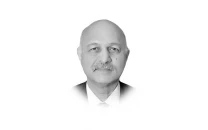



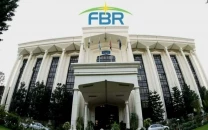

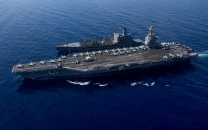
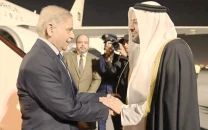


COMMENTS
Comments are moderated and generally will be posted if they are on-topic and not abusive.
For more information, please see our Comments FAQ